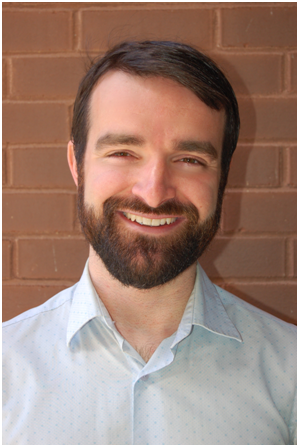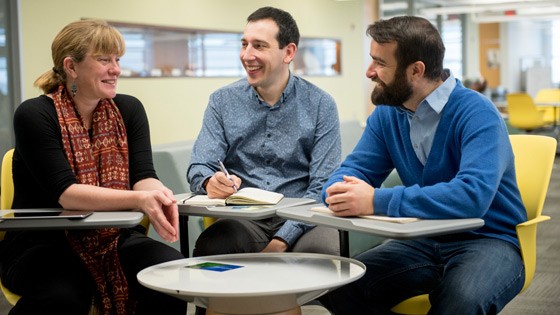 by Mitchell White-Richard, CFICE Volunteer
by Mitchell White-Richard, CFICE Volunteer
As CFICE is now entering into Phase II of its seven-year SSHRC-funded action research project, it is important to look back in reflection and recognize how far we’ve come, and some of the people who have helped in getting us to where we are today.
Michael Lait is one of those important figures. As a PhD student, he joined the CFICE project in 2014 as a research assistant for the Community Environmental Sustainability (Ottawa) Hub of CFICE. His primary task involved working as an “embedded RA” with the Ottawa Eco-Talent Network (OETN), an organization that provides a network of advisers to communities working in environmental sustainability, by way of mentoring and offering research and assistance where necessary. He worked with them for nearly 2 years.
While working with OETN, Michael helped establish a business case for the OETN, highlighting organizational issues that required more planning and development. Following this, Michael worked with OETN’s Board of Directors in completing a grant application for the Ontario Trillium foundation for a $160,000 three-year grant. This grant application was successful and enabled OETN to move from a pilot phase into full implementation, bringing the organization to life.
“Funding is important to what we could do,” says Micheal, who spoke about the grant. He explains that through this grant the OETN was able to pursue new opportunities and ensure its goals were being met through its projects.

(Left to right) Carleton professor Patricia Ballamingie, Jason Garlough of the Ottawa Eco-Talent Network, and doctoral research assistant Michael Lait (Justin Tang Photo)
Speaking about his time as a research assistant, Michael described the embedded experience as something new and educational. “It was a new learning experience; we learned by doing.”
His experience with the OETN allowed him to step out of his comfort zone and dive into new material. As a sociology major, Michael says he never saw himself working on business cases. Unlike other research positions, Michael said that his time with CFICE was focused not only on achieving results, but also developing long-term community partnerships.
Michael also said that his experience as a research assistant helped him discover new viewpoints. “It brought out new perspectives in understanding how complex sustainability really is.”
“Unlike other research jobs, this was less about publication and more about collaboration,” he notes. Michael describes his experience with CFICE as the opportunity for communities to support one another and collaborate on issues that would perhaps otherwise be too daunting or difficult for a single group to manage.
To learn more about the OETN and their current projects, please visit their website.